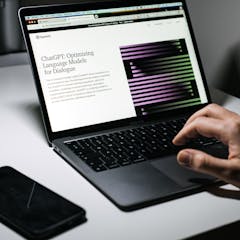
Articles on Academic integrity
Displaying 1 - 20 of 26 articles

About two-thirds of students admit to plagiarizing material. Faculty are expected to know better, but they do it, too. How should universities respond?

Since ChatGPT was released a year ago, we have been asking Australian university students and academics about their use of generative AI.

There has been a huge amount of speculation about what ChatGPT means for university study. But has actually been happening? A new survey looks at the first semester with this new technology.

Do you own a literary work that ChatGPT helped you write? Does OpenAI? The legal questions are thorny, and the answers unclear.

We ought to want student essays to reflect understanding, judgment and caring, something beyond ChatGPT.

Some fear ChatGPT will increase student cheating. But education academics say it can also save time preparing lessons and create new opportunities for learning.

Educators need to carefully consider ChatGPT and issues of academic integrity to move toward an assessment system that leverages AI tools.

Research about both social and technical aspects of work can guide critical thinking about when and how business leaders and MBA students might use generative AI.

In Indonesia, contract cheaters take advantage of a culture of academic competition, a lack of legal clarity, and the move to online testing and assignments.

AI models can now produce meaningful responses to exam and assignment questions. We’ll have to embrace them if we want the next few years to go smoothly.

Research suggests the only way to effectively combat online cheating for now is holding exams in person.

Australian scientists are no more honest or dishonest than those in other countries that have national bodies to investigate research fraud. We have a sport integrity watchdog but not one for research.

An estimated one in ten Australian tertiary students have paid a so-called contract cheating service to do their work for them. What most don’t think about is the risk of being blackmailed later.

What’s judged to be plagiarism may shift as students rely on more sophisticated forms of technology for writing support.

Recent allegations of cheating by university students in online exams suggest the students are adapting faster than the education system itself – and that should change.

The forced transition to online university learning will mean teaching practices will be permanently changed.

Equity and privacy problems with online proctoring reflect a larger issue: Students look to universities to set an example of integrity.

Many countries monitor higher education at the federal level, partly to take a systemic approach to overseeing academic integrity. Why not Canada?

The Institute for Public Affairs’ audit of academic freedom pits people either for or against universities. This prevents us from having thorough conversations about real threats to academic freedom.

Online students tend to be older, which might explain why new data suggest they’re less likely to cheat. But even with these data, the evidence is mixed.
